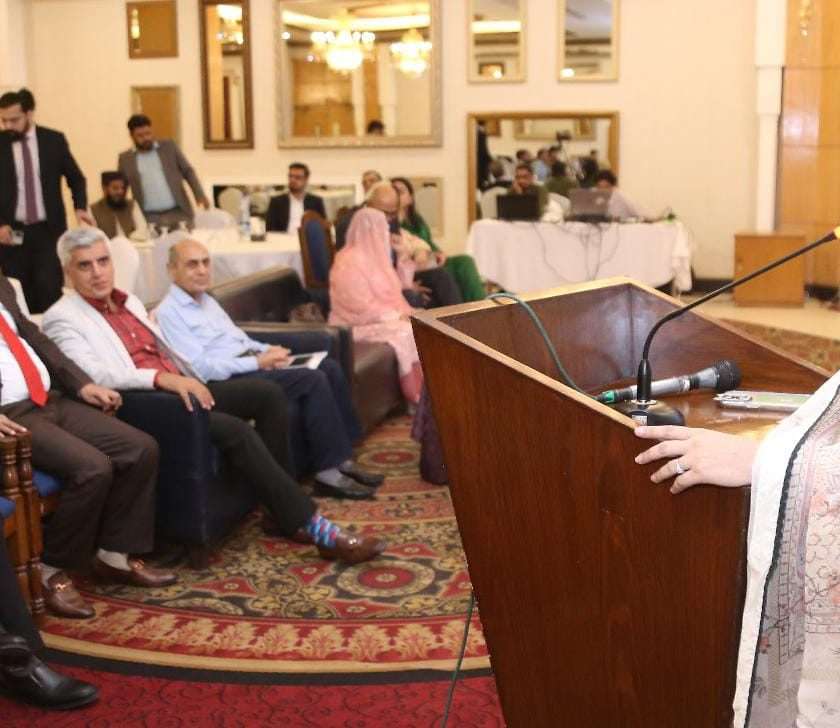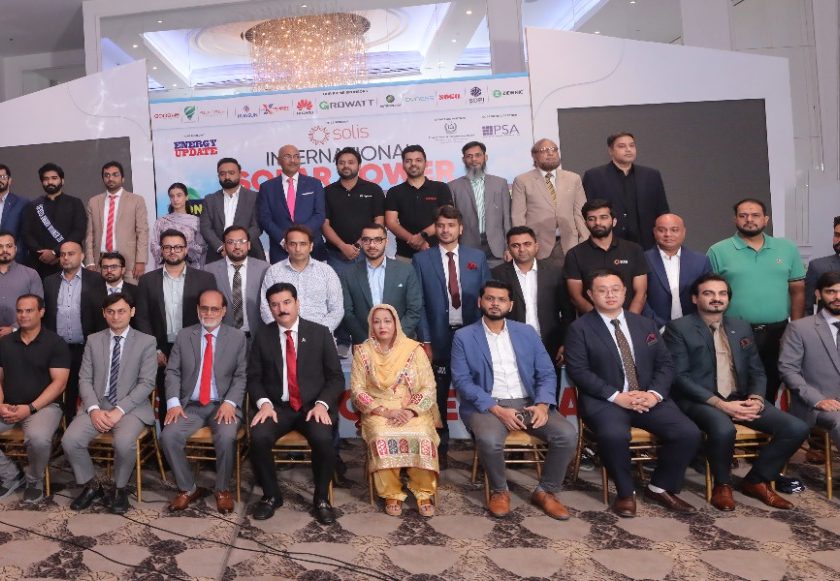[sp_wpcarousel id=”2203″]
2nd International Wind Energy Summit If Denmark could achieve more than half of its power generation through renewable means, Pakistan could also easily do: Danish envoy Karachi, November 22: If Denmark could achieve up to 56 per cent of its power generation through renewable resources and by the year 2035, 100 per cent of its power production through clean sources of energy; the same is easily be achievable by Pakistan given that it adopts a strong political will and consistency in policies for the energy sector. The Danish Ambassador to Pakistan Rof Michael Hay Pereira Holmboe stated this here on Wednesday in his keynote address in the inaugural session of second International Wind Energy Summit organized by Energy Update in collaboration with Sindh Government’s Energy Department and Alternative Energy Development Board (AEDB). The Danish ambassador said on the occasion that natural climatic conditions in Pakistan especially in its identified regions in Sindh and Balochistan were much favourable to produce electricity using renewable means of power than the similar conditions available to Demark. “What I learnt that Pakistan at present is just producing 1.5 per cent of its electricity through renewable means is quite a dismal figure given the favourable conditions available in the country. That is quite low figure as Pakistan has to actively make progress to produce much more electricity using the alternative means,” he said. He said that Pakistani government had to make a choice whether to continue using expensive conventional fuels for power generation or switch to the cheaper means for energy generation through alternative means. He said that once Pakistan resorted to clean sources of energy, the cost of power production would ultimately decrease so to lessen the burden of energy sector on the economy. While that option would also be helpful in improving environmental conditions in the country and resolving serious issues like smog currently prevailing in the province of Punjab, he said. He said that countries in the region like India and China seemed to have adopted policies in the energy sector that would enhance their reliance on alternative means for power production as Pakistan had to pursue the same path. He said that increasing reliability on renewable means for power generation was quite a win-win solution for economy of any country as it increased efficiency in the energy that is helpful for economic development. The Danish envoy said that Denmark had made a choice in the middle of decade of 1970s to go for the option for exploring renewable means instead of opting for nuclear power production or any other conventional means of energy production using hydrocarbon fuels. That choice was made when Denmark like other countries in the region had been facing an oil crisis. This choice proves very much successful for the country as now Denmark as considered as the leader in the global community maximally relying on wind energy to produce cheaper electricity, said the Danish ambassador. He said that Denmark had been working on a plan to make its entire energy consumption completely carbon-free by the year 2050 and for such a noble cause to conserve the country’s environment, it had been actively pursuing the renewable means and using the hybrid methods to maximize energy generation through wind, solar power, and waster-to-energy methods. He said that Denmark was fully willing to assist Pakistan to more effectively explore and utilize its potential for power generation through renewable means as Danish technologies and products were being used by a number of countries for the same cause. Mr. Holomboe suggested that one such option for Pakistan could be installation of offshore wind power projects near the coast of Karachi similar to such experiments currently being done by many Northern European countries. Zafar Sobani, a senior energy sector expert, said on the occasion that it was high time Pakistan should achieve minimum 05 per cent of its power generation on basis of alternative means of electricity that had been the target set in the renewable energy policy adopted by the govt more than a decade back. The present 1.5 per cent production of electricity through renewable means was quite low, he said. Rashid Hussain Kazi, special secretary of Sindh Government’s Energy Department, said that Gharo-Jhimpir wind corridor was at present producing 788 Megawatts of renewable energy while a matching volume of renewable energy production would be achieved by next year on basis of new projects being installed in the same wind corridor. He said that Sindh had been pursuing a balanced energy policy in order to utilize both conventional and alternative sources of power production to maximally utilize true potential of the province for energy production. The Thar coal and power project is one such example proving that Sindh could provide energy solution for the entire country, said Mr. Kazi. Sajjad M Qureshi, senior advisor to National Electric Power Regulatory Authority (Nepra) on Tariff , said the Nepra would soon be opting for conventional competitive regime for determining tariff for upcoming wind energy projects in the country given that all the formalities were completed by the provincial governments concerned and AEDB. He said the Nepra had been doing whatever it could do within its charter and lawful regime to encourage maximum power production through renewable means. Danish Iqbal, president of Pakistan Wind Energy Association, said that relevant agencies of the govt and Nepra should not make upcoming wind power projects to unduly wait to become operational on the account of tariff-related issues and other formalities hampering the process to utilize potential of the province to generate clean electricity. Naeem Qureshi, chairman of the organizing of summit, said that wind energy summit would become a regular feature on annual basis as in upcoming years it would also cover and discuss other means being explored in the country for clean electricity generation. Speaking as the chief in the concluding session, Sindh Information Minister Syed Nasir Hussain Shah said that provinces should be granted maximum autonomy in the regime of energy sector as the per the spirit of 18th Constitutional Amendment for effectively resolving energy crisis of the country. He said that provinces should also be made independent in affairs related to determination of tariff, transmission, and distribution affairs for the power projects being developed in their respective jurisdictions. He said that 100 MWs Nooriabad power plant being first power project of Sindh government got delayed due to issues related to transmission of electricity to the grid as the relevant federal authorities didn’t provide much help to provincial govt in this regard.







